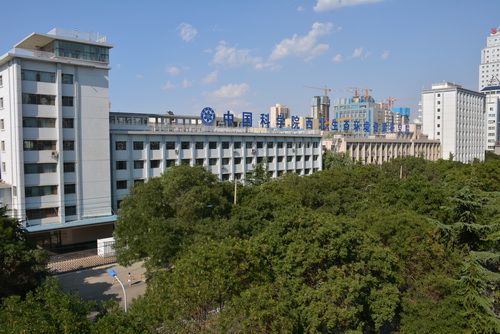About NIEER
The Northwest Institute of Eco-Environment and Resources (NIEER), Chinese Academy of Sciences (CAS) was established in 2016 through the merger of five former CAS institutes, namely Cold and Arid Regions Environmental and Engineering Research Institute, Lanzhou Center for Oil and Gas Resources affiliated to the Institute of Geology and Geophysics, Lanzhou Branch of the National Science Library.
The NIEER is a multidisciplinary research institute, specializing in study of eco-environment, natural resources, and national key environmental engineering; focusing on, among other things, cryosphere and global climate change, frozen ground and cold regions engineering, desert and desertification, plateau atmospheric physics and meteorology, water and land resources and environmental rehabilitation, ecology and agriculture, remote sensing information system, oil and gas geology, and scientific information service.
For national development, the NIEER aims to guide the New Silk Road Economic Belt construction and China's Western Development Strategy implementation, and to supply basic research materials for eco-environmental rehabilitation, resources exploration and exploitation, key engineering construction, and social-economic sustainable development.
For academic purposes, the NIEER aims at the leading edge of geoscience and to establish a series of theoretical system standing at the world on research fields of atmosphere-hydrosphere-biosphere-cryosphere-lithosphere interaction and global change, regional climate and environmental evolution, ecosystem degradation mechanism and reconstruction, important natural resources formation and exploitation, etc.
The NIEER comprises three research units, and they are experimental and analytical unit, field observation unit, and information platform and networking unit. These facilities provide excellent conditions for scientific research and observation.
The experimental and analytical unit is home to two state key labs, namely State Key Laboratory of Frozen Soils Engineering and State Key Laboratory of Cryospheric Sciences, six CAS key labs, twenty provincial key labs/engineering or R&D centers.
The field observation unit comprises twenty-five field stations, among them nine are graded as national key station,and sixteen as CAS or institute key station. These field stations play an important role in supporting field work, long-term monitoring, data accumulation and graduate student training.
The information platform and networking unit includes the Lanzhou Branch of the National Science Library, the Big Data Center of Sciences in Cold and Arid Regions (BDC-SCAR), and the Technology Service Center.
In the past six decades, the NIEER and its predecessors have conducted numerous research programs with great achievements, covering the National Basic Research Program (“973” Program), the National High-Tech R&D Program (“863” Program), the National Key Technologies R&D Program, the National Natural Science Foundation, and others at provincial and ministry levels or from international funding agencies.
By the end of 2023, the NIEER has a research staff of 1198, and 199 of them are full professors with 16 chief scientists of “973” program, 12 NSFC Distinguished Young Scholars, and 162 CAS West Light Foundation receivers. NIEER is home to five academicians of Chinese Academy of Sciences and one member of the Third World Academy of Sciences.
The NIEER has been authorized to offer Ph.D and M.Sc. programs as well as postdoctoral positions in the fields of geography, cartography and geographic information system (GIS), meteorology, atmospheric physics and environment, geophysics, mineralogy, geochemistry, geology, ecology, geotechnical engineering, and information science, etc. By the end of 2023, the NIEER had 106 Ph.D. advisors, 418 master students, 492 Ph.D. students, and 14 of them are foreign students.
The NIEER has successfully sponsored twelve academic periodicals, among them ten in Chinese with English abstract and two in English. As effective medium and bridge for technical communications and academic exchanges, these scholarly journals aim at providing a transnational communication venue for researchers in the world, in order to facilitate the harmonious socio-societal development of human and nature and logical exploitation of natural resources in concordant and sustainable ways.
The NIEER has established international cooperation and exchange programs at various levels with internationally renowned academic and educational institutions in more than 20 countries and regions. Only in the past one year, more than 300 NIEER scientists have attended international meetings or participated in international cooperation research programs, and more than 220 overseas scholars visit the NIEER or participate in joint research programs with NIEER staff. The international cooperation has been playing increasingly important roles in the NIEER, for providing opportunities for Chinese and overseas scholars to conduct joint projects, for serving as windows to learn more about China and the world, and for rapidly developing mutual benefits in advancing scientific and technological research.
Address: 320 Donggang West Road, Lanzhou, 730000 Gansu, China
Tel: 86-931-4967518
Fax: 86-931-8273894
E-mail: kych@lzb.ac.cn





